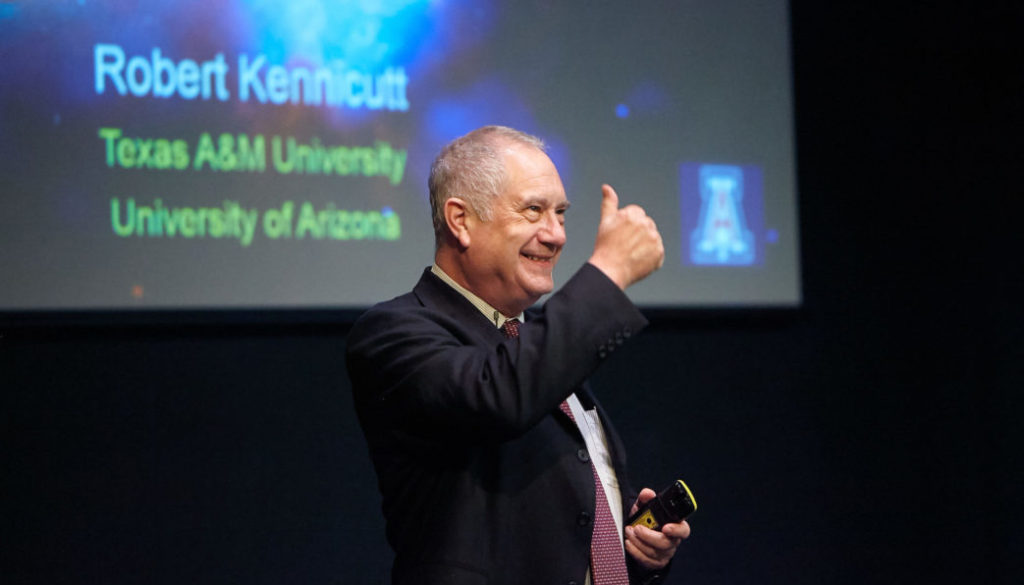Robert Kennicutt Honored With 2019 NAS Award for Scientific Reviewing
COLLEGE STATION —
Texas A&M University astronomer Robert C. Kennicutt Jr. has been selected to receive the 2019 National Academy of Sciences (NAS) Award for Scientific Reviewing, presented this year in astronomy.
Kennicutt, executive director of Texas A&M’s George P. and Cynthia Woods Mitchell Institute for Fundamental Physics and Astronomy and a globally renowned expert in observational extragalactic astronomy, is cited “for his field-defining work in the field of astrophysics.” He is one of 18 individuals honored by the NAS for extraordinary scientific achievement in a wide range of fields spanning the physical, biological and medical sciences.
The NAS Award for Scientific Reviewing has been presented annually since 1979 to recognize authors whose reviews have synthesized extensive and difficult material, rendering a significant service to science and influencing the course of scientific thought. The field rotates among the physical, biological and social sciences and in 2019 honors reviews in astronomy. The award carries with it a $20,000 prize and is sponsored entirely by Annual Reviews.

Dr. Robert C. Kennicutt Jr. 
Dr. Robert C. Kennicutt Jr., pictured in Texas A&M’s George P. and Cynthia Woods Mitchell Institute for Fundamental Physics and Astronomy.


